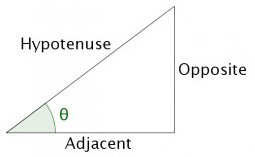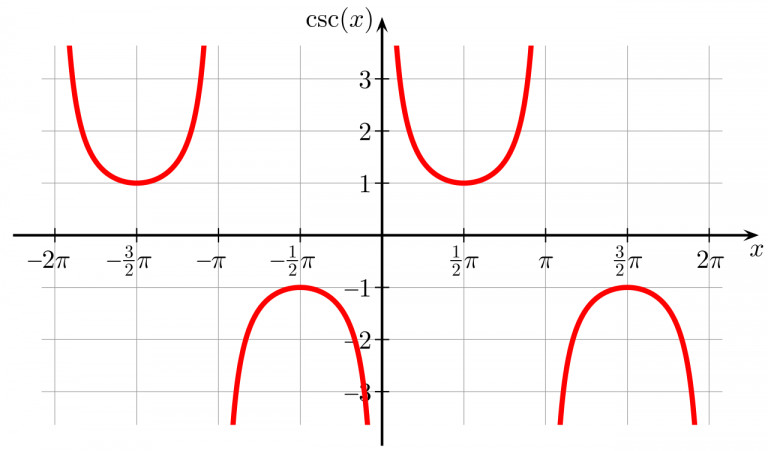Cosecant Lesson
Definition of Cosecant
In trigonometry, the cosecant is the reciprocal of the sine. Cosecant is abbreviated as csc. The relation of cosecant and sine is as follows:
csc(θ) = 1⁄sin(θ) and sin(θ) = 1⁄csc(θ)
In a right triangle, the cosecant of an internal angle is the hypotenuse divided by the opposite side, such that csc(θ) = hypotenuse⁄opposite.


Cosecant's Inverse — csc-1
The inverse function of the cosecant is called arc cosecant. In abbreviated form, this relation is given as:
arccsc(θ) = csc(θ)-1
The arc cosecant follows the same relation as all other inverse trigonometric functions. It is the length that produces an angle where the csc of that angle is the length. Here is what the relation looks like when used:
csc(40°) = 1.556
arccsc(1.556) = 40°
Graph of the Cosecant Function
The image below is what y = csc(x) looks like when graphed for several periods.

Notice how the curves are asymptotic to x = -π, x = 0, x = π, and so forth? This is because at every whole multiple of pi, the value of the function looks like:
y = csc(π) = 1⁄sin(π) = 1⁄0
Since dividing by zero is undefined, the function does not exist on those x values. The curve will go infinitely up or down in the vertical direction, but never touch the x values that it is asymptotic to.

